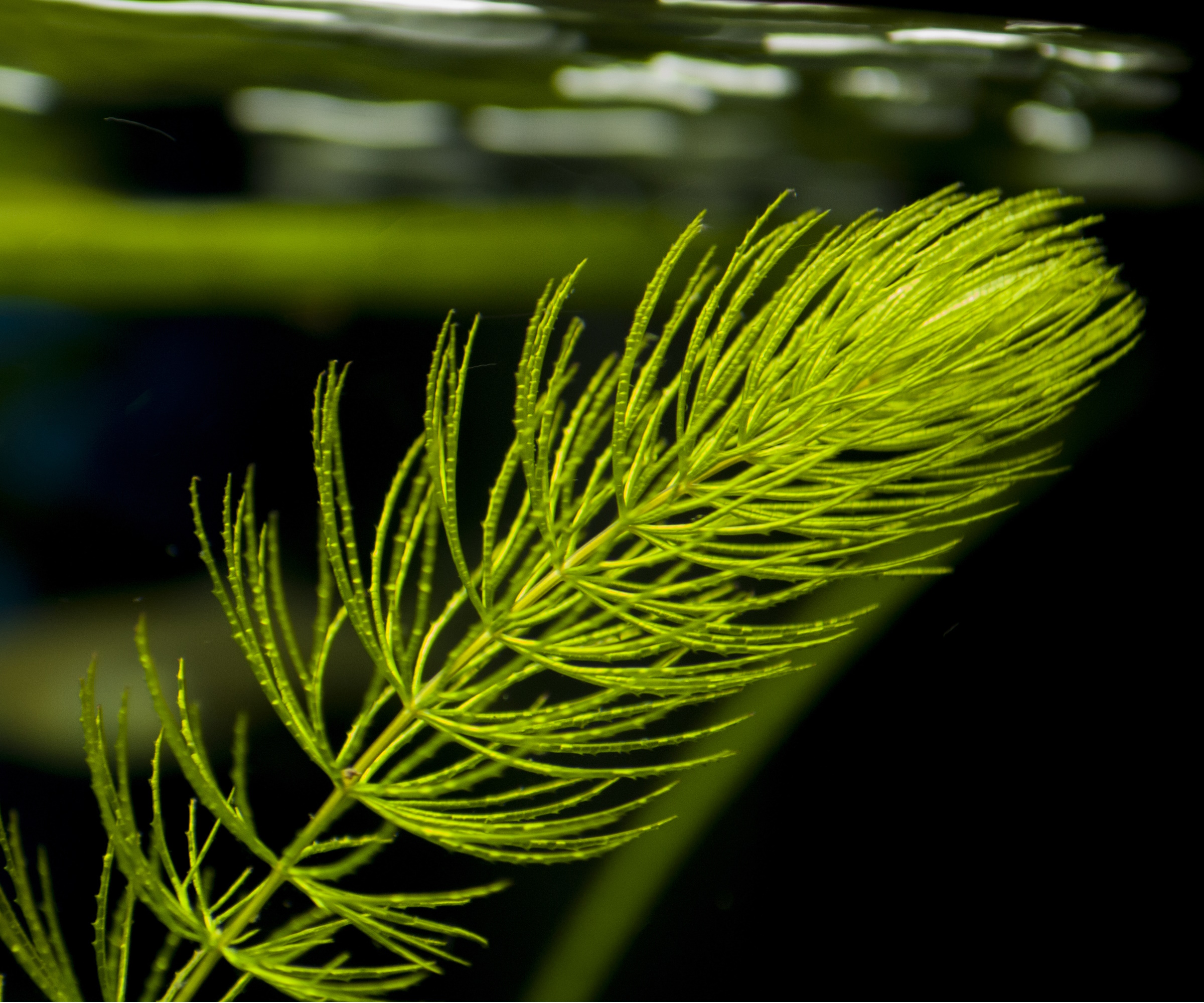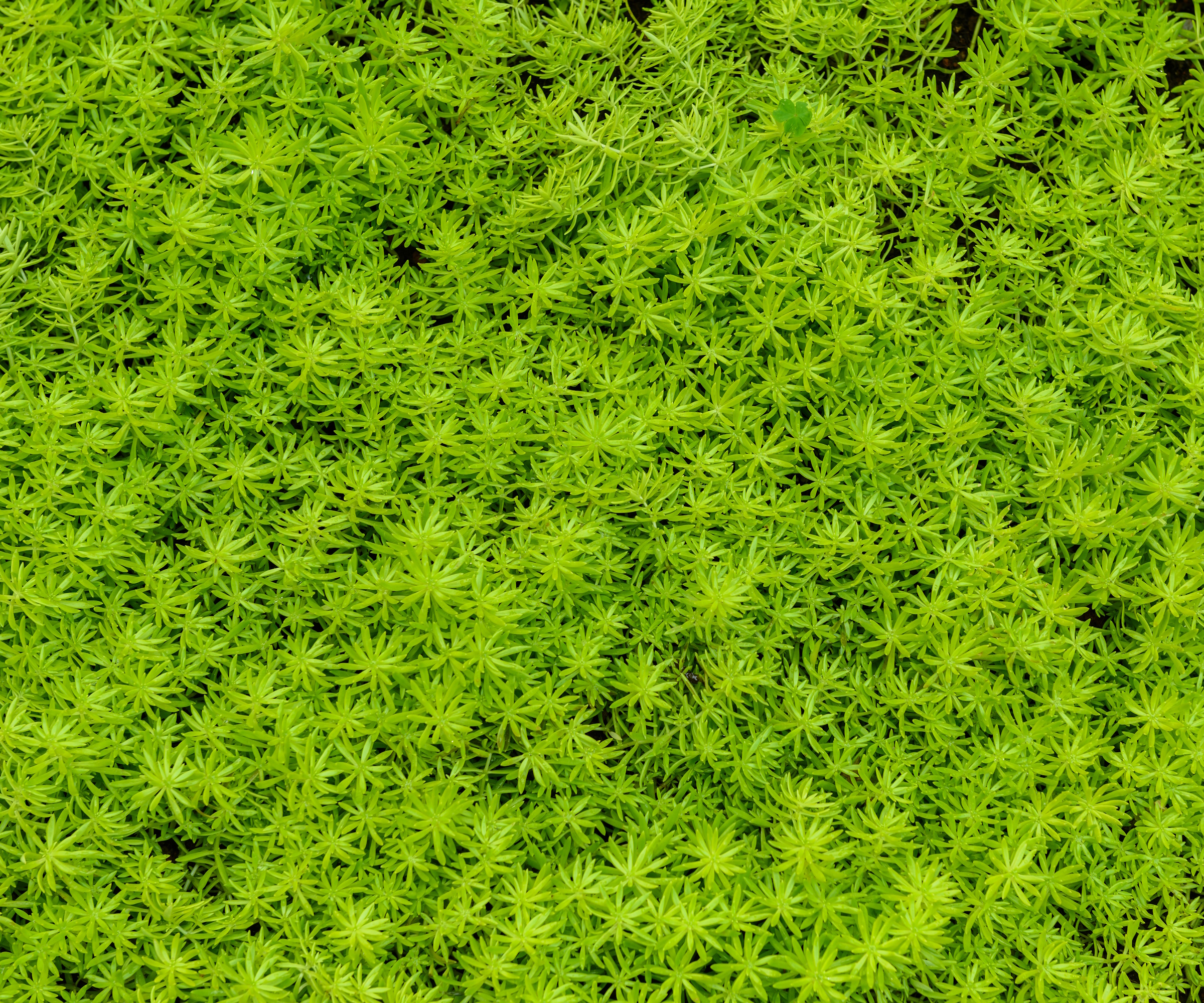Oxygenating pond plants – 5 plants to keep your pond water looking clear
Choosing the right plants for your garden pond can help keep it clean and support wildlife


Design expertise in your inbox – from inspiring decorating ideas and beautiful celebrity homes to practical gardening advice and shopping round-ups.
You are now subscribed
Your newsletter sign-up was successful
Want to add more newsletters?

Twice a week
Homes&Gardens
The ultimate interior design resource from the world's leading experts - discover inspiring decorating ideas, color scheming know-how, garden inspiration and shopping expertise.

Once a week
In The Loop from Next In Design
Members of the Next in Design Circle will receive In the Loop, our weekly email filled with trade news, names to know and spotlight moments. Together we’re building a brighter design future.

Twice a week
Cucina
Whether you’re passionate about hosting exquisite dinners, experimenting with culinary trends, or perfecting your kitchen's design with timeless elegance and innovative functionality, this newsletter is here to inspire
Having a pond in your backyard is a wonderful way to welcome wildlife to your outdoor space and add water interest to your landscape.
There are lots of garden pond ideas to explore with many different pond plants to choose from, and it's important to consider including a range of oxygenating pond plants. These are plants that grow submerged in pond water where they absorb carbon dioxide and give off oxygen. They also absorb other impurities in the water and help to keep your pond looking clear by reducing the amount of nutrients absorbed by algae.
Not sure where to start? We've compiled an expert list of oxygenating pond plants that you should consider incorporating in your garden pond.

5 oxygenating pond plants
There are a range of pond plants that help produce oxygen and absorb impurities in the water. We've compiled an expert list of oxygenating pond plants so that you can keep your garden pond looking clear.
1. Coon's Tail

A must for all garden ponds is coon's tail, also known as Ceratophyllum demersum and hornwort. This pond plant has a feathery look resembling a tail of a racoon and can add fun texture to your water feature.
'Their submerged portions provide habitats for various micro and macro invertebrates, which can then be consumed by fish and other wildlife,' says Autumn Janus, plant expert from Perfect Plants.
'Additionally, coon's tail plants release oxygen during photosynthesis, helping to maintain adequate oxygen levels in the water for the benefit of aquatic organisms,' she adds.
Design expertise in your inbox – from inspiring decorating ideas and beautiful celebrity homes to practical gardening advice and shopping round-ups.
You can shop for coon's tail online, like this hornwort bunch from Walmart.

Autumn is a horticulture specialist and marketing professional at Perfect Plants Nursery. With four years of experience in the horticulture industry, she has developed a passion for helping people create beautiful indoor and outdoor spaces to enjoy. Her expertise in horticulture encompasses a broad range of activities, including plant care and selection, landscape design, and maintenance.
2. Hair grass

To add some finer foliage, hair grass is a oxygenating plant that can work well in shallow areas of ponds.
Also known as Eleocharis acicularis, hair grass is a vibrant oxygenator that can be submerged by around 24 inches. It grows in tufts which provide habitats for pond wildlife, making it an excellent choice when creating a wildlife pond.
These delicate plants grow beautifully above the surface of the water, also adding height and structure to your pond area.
Find hair grass online, like this hair grass from NatureHills.com.
3. Spiked water milfoil

When building a pond, you should consider how to keep it clean and finding the best plants to help with this is vital. Spiked water milfoil is a great choice for an oxygenating plant that will absorb nutrients in the water and reduce the growth of algae.
Spiked water milfoil, or Myriophyllum spicatum, has attractive feathery foliage. It grows best just beneath the surface of water and you will see red flowers appear on its spikes in the summer months.
The dense foliage of spiked water milfoil provides excellent shelter for aquatic wildlife and supports the ecosystem of your pond.
4. Marsh Marigold

If you want to add some color to your pond, you should consider flowering plants that are oxygenators which both brighten up your pond and keep it healthy.
'Marsh marigold plants (Caltha palustris) can be a beneficial addition to ponds for a few reasons,' says Autumn. 'Firstly, they contribute to oxygenation by releasing oxygen into the water during photosynthesis. Secondly, they absorb excess nutrients from the pond, which helps prevent the growth of excessive algae and promotes a healthier ecosystem,' she adds.
Marsh marigolds are among the best water garden plants and will also provide shelter for different organisms and will bloom for many months at a time.
You can find marsh marigolds online, like this marsh marigold from NatureHills.com.
5. Waterweed

A popular pond plant that sits beneath the surface and helps with oxygenation is waterweed, or Elodea canadensis.
It has long fronds that help absorb nutrients from pond water and keep it clear. From spring to fall, you might notice your waterweed produce small white flowers which may appear above the surface.
The density of waterweed's foliage makes it an excellent habitat for aquatic wildlife, providing plenty of shelter.
Find waterweed online, like this waterweed from Walmart.
FAQs
How many oxygenating plants do I need for my pond?
Oxygenating pond plants help to keep your pond water clear. The number of plants you need to keep your pond in fit condition will depend on its size. It is generally recommended to have two to three oxygenating pond plants per square meter if you want to create an effective environment.
It's a good idea to consider oxygenating pond plants to help keep your pond water clean and support aquatic wildlife in your yard.
If you're interested in creating more water features in your yard, you might be inspired by our list of water garden ideas.

Tenielle is a Gardens Content Editor at Homes & Gardens. She holds a qualification in MA Magazine Journalism and has over six years of journalistic experience. Before coming to Homes & Gardens, Tenielle was in the editorial department at the Royal Horticultural Society and worked on The Garden magazine. As our in-house houseplant expert, Tenielle writes on a range of solutions to houseplant problems, as well as other 'how to' guides, inspiring garden projects, and the latest gardening news. When she isn't writing, Tenielle can be found propagating her ever-growing collection of indoor plants, helping others overcome common houseplant pests and diseases, volunteering at a local gardening club, and attending gardening workshops, like a composting masterclass.